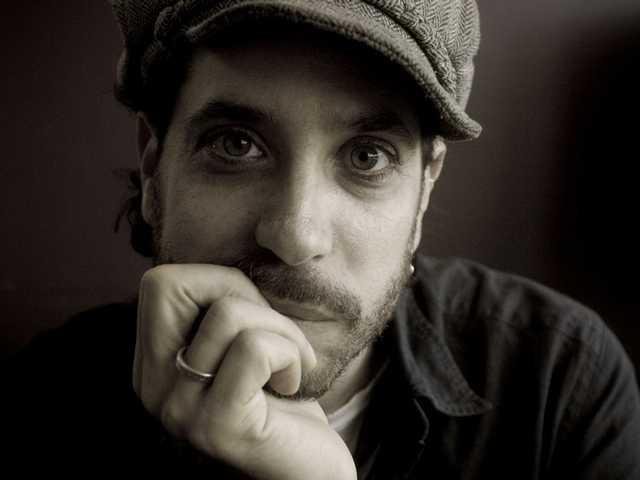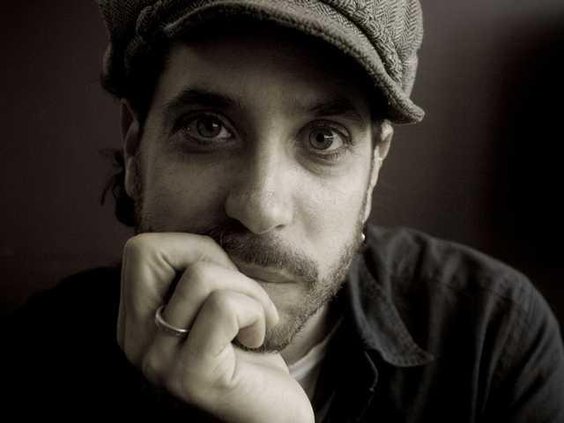Jonathan Byrd, Danny Schmidt and Doug and Telisha Williams in the round
When: 8 p.m. Friday
Where: The Crimson Moon Cafe, 24 N. Park St., Dahlonega
How much: $14 advance, $16 at the door
More info: 706-864-3982
Singer-songwriter Danny Schmidt, 36, will join other folk and Americana musicians for an in-the-round concert 8 p.m. Friday at The Crimson Moon Café in Dahlonega.
Schmidt's life has been full of experiences that fueled his creativity as a songwriter, but when he was diagnosed with cancer - without health insurance - in 2003, he had to get creative and find a way to pay his bills.
Before his diagnosis, Schmidt had decided to quit the music business for a career in film, but he never stopped playing his guitar.
Schmidt sold "Home Recordings," a collection of songs originally recorded on his computer for his personal records, to fans as a way to raise money for health expenses. He planned a home concert tour, and bit by bit he paid his debt.
But the experience also led to his return to a professional music career.
We spoke with Schmidt and he gave us a little insight into what inspires him, and how his fans made it all work out.
Question: What is your musical background?
Answer: Well, it started with, like, heavy metal and loud guitar stuff, and then I got into classic rock stuff. And then I got into electric blues stuff and then I got into country blues stuff. And then from there, when I was about 21 or so, I got into acoustic country blues stuff and that's when I got the acoustic guitar and started getting into the songwriting field. I've been primarily a singer-songwriter, totally acoustic guy since then.
Q: What inspires you lyrically?
A: I think probably things that inspire anybody in any way. Just kind of ruminating on things that are going on in the world and things that are going on in our lives. It's not like I'll have some blinding moment of inspiration or anything, it's just that my brain is always stirring over, you know, what's going on with the world, so that when I do sit down with a guitar, I tend to not write very consciously.
Q: How would you describe the theme for your album, "Instead the Forest Rose to Sing?" Did you focus on money?
A: It wasn't like it was a concept album about money or anything like that. It's more like, when I've done a record, I look at which songs I pick to put on it, and why it was I thought there was some sort of commonality amongst those songs. So it's not like I set off in the beginning to write a bunch of songs around some theme. And I wouldn't even call the theme money, per se. I would call it more our values and how we choose to allocate our resources towards our values. That could be money, that could be time, that could be our labor, but I think given the economic times people seem to be focusing on the money element of that. But I think it's really just kind of a small part of the equation.
Q: How did you go about selling "Home Recordings" to offset your medical expenses?
A: I had a job, but I didn't have health insurance, and I had been there three months, and that's when the health stuff hit. So, I was kind of in a conundrum trying to figure out how to pay for $40,000 worth of health debt. I kind of realized that a community in this one network that I had built up when I was playing music was sort of a safety net. It was kind of a real, tangible network of people that could help me out, so I announced to my e-mail list that I had this problem, and I didn't have anything new to sell them; all I have is these home recordings. ... And told them I'd sell it to them for whatever they were willing to pay for them. Somebody would say, I have five bucks to chip in, I have 50 bucks to chip in.
Q: Did that experience give you a closer relationship with your fans?
A: In the folk world, I think, in the independent music world, a personal relationship with the fans is more essential to making it happen. There's not a bunch of money being handed down to bands and artists to promote sort of from the top down, so you sort of build your audience by playing lots of shows and being sociable and having people sign up to a list, and then when you announce a show in a new area, people on your list will help spread the word to people on their list. Now with the social networks, MySpace and Facebook and Twitter and all that, that's a process that more and more bands are doing, not just the folk singers. But that process has been in place in the folk world for a long time.

